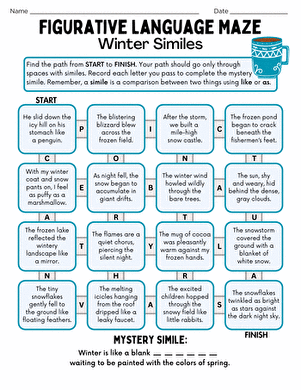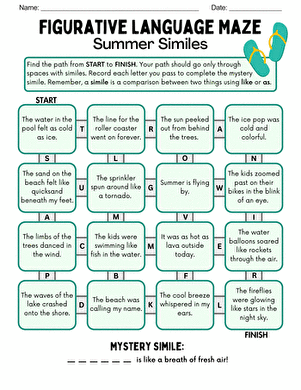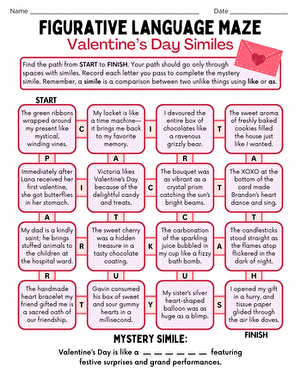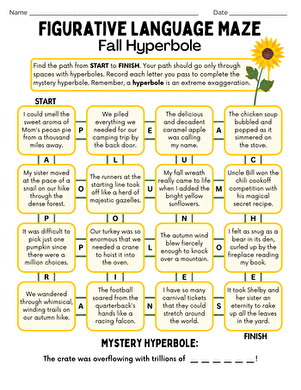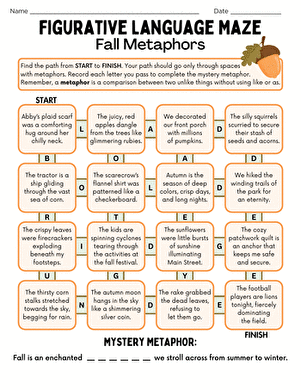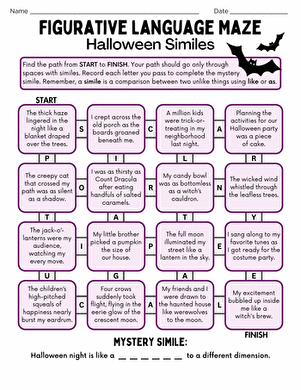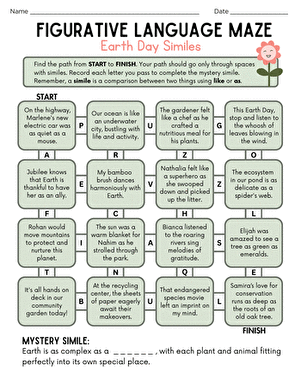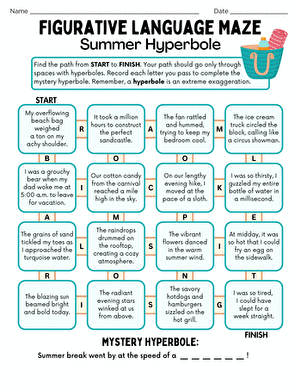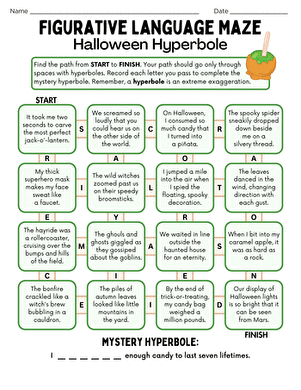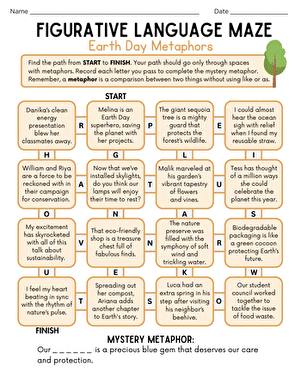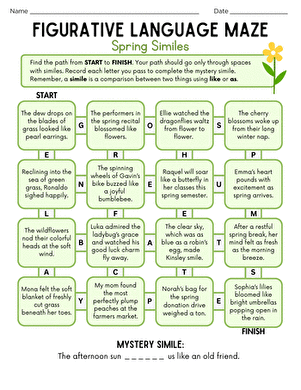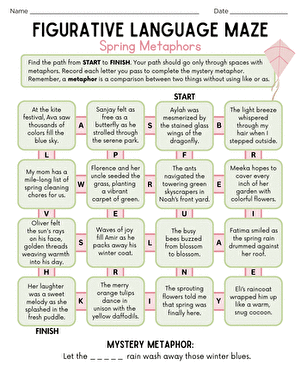Offline Educational 7th Grade Figurative Language Games
About Offline Educational 7th Grade Figurative Language Games
On Education.com, educators and parents can explore printable activities designed to help 7th-grade students practice and master figurative language concepts. This page features exercises, games, and lesson plans focusing on similes, metaphors, hyperbole, and personification, providing engaging ways for students to connect literary elements with everyday experiences.
Through a variety of hands-on resources like printable worksheets, classroom games, and creative projects, teachers and parents can support students in applying figurative language skills creatively. Materials such as Group Bingo, Poem Creation exercises, and Interactive Worksheets encourage collaboration and reinforce understanding while making learning fun.
Using these ready-to-use resources simplifies lesson planning by providing structured, educational activities that promote critical thinking, creativity, and reading comprehension. Whether in the classroom or at home, students can practice figurative language techniques while enhancing communication skills and literary appreciation.
Through a variety of hands-on resources like printable worksheets, classroom games, and creative projects, teachers and parents can support students in applying figurative language skills creatively. Materials such as Group Bingo, Poem Creation exercises, and Interactive Worksheets encourage collaboration and reinforce understanding while making learning fun.
Using these ready-to-use resources simplifies lesson planning by providing structured, educational activities that promote critical thinking, creativity, and reading comprehension. Whether in the classroom or at home, students can practice figurative language techniques while enhancing communication skills and literary appreciation.

